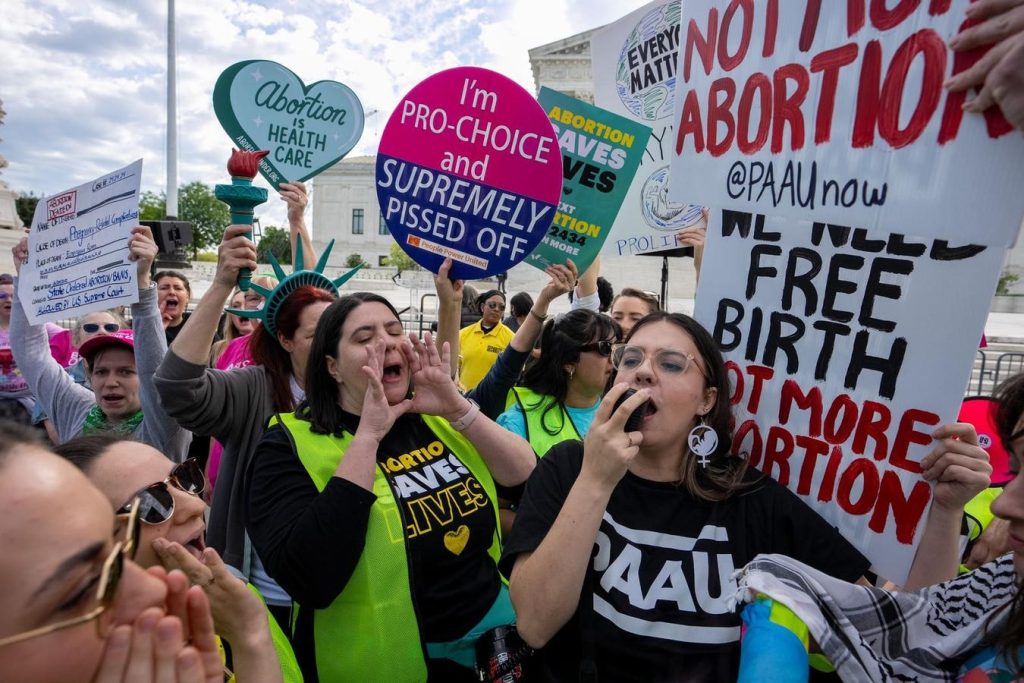Support for legal abortion has reached a new high, with a recent Quinnipiac University poll indicating that 66% of voters believe abortion should be legal in all or most cases, marking a record high in the university’s two decades of polling. Additionally, support for abortion in all cases has also increased to 34%, while support for banning abortion in all cases has reached an all-time low of 5%. This trend is in line with other surveys showing a significant increase in support for abortion in all or most cases over the past decade.
The issue of abortion is becoming increasingly important in this year’s election, with a Bloomberg/Morning Consult survey indicating that more than half of voters in seven swing states consider it very important to how they will vote. Several states are set to decide in November whether to overturn restrictive abortion laws that were enacted in the wake of Roe v. Wade’s reversal. In Florida, voters will have the opportunity to reverse a six-week abortion ban that was signed into law by Governor Ron DeSantis. Additionally, in Arizona, abortion rights supporters have gathered enough signatures to put a constitutional amendment before voters that would protect the right to abortion and reverse a Civil War-era abortion ban reimplemented by the state Supreme Court.
President Biden’s campaign has focused on attacking former President Trump for his appointment of conservative Supreme Court justices who voted to overturn Roe v. Wade. Biden has pledged to reinstate the federal right to abortion if he is elected to another term. On the other hand, Republicans have struggled to develop a cohesive messaging strategy on the issue, with party leaders attributing this to losses in key Senate and House races during the 2022 midterm elections. Recently, many Republicans, including Trump, have shifted their stance on abortion, advocating for policies to be decided at the state level.
In Florida, voters will decide whether to enshrine the right to abortion in the state constitution, which would effectively overturn the six-week abortion ban signed into law by Governor DeSantis. Meanwhile, in Arizona, the state legislature may block a constitutional amendment that would protect the right to abortion and reverse a 15-week ban if it is passed by both the House of Representatives and signed by the state’s Democratic Governor Katie Hobbs. The ongoing debate over abortion rights and restrictions is likely to continue to shape the political landscape leading up to the 2024 election.
It is clear that abortion rights have become a pivotal issue in the current political climate, with both Democrats and Republicans leveraging it to mobilize voters. As the country grapples with the implications of recent abortion restrictions and potential legislative changes, the 2024 election promises to be a crucial moment for the future of reproductive rights. The outcome of state-level initiatives and voter decisions on abortion laws will undoubtedly have far-reaching consequences for individuals across the country.















